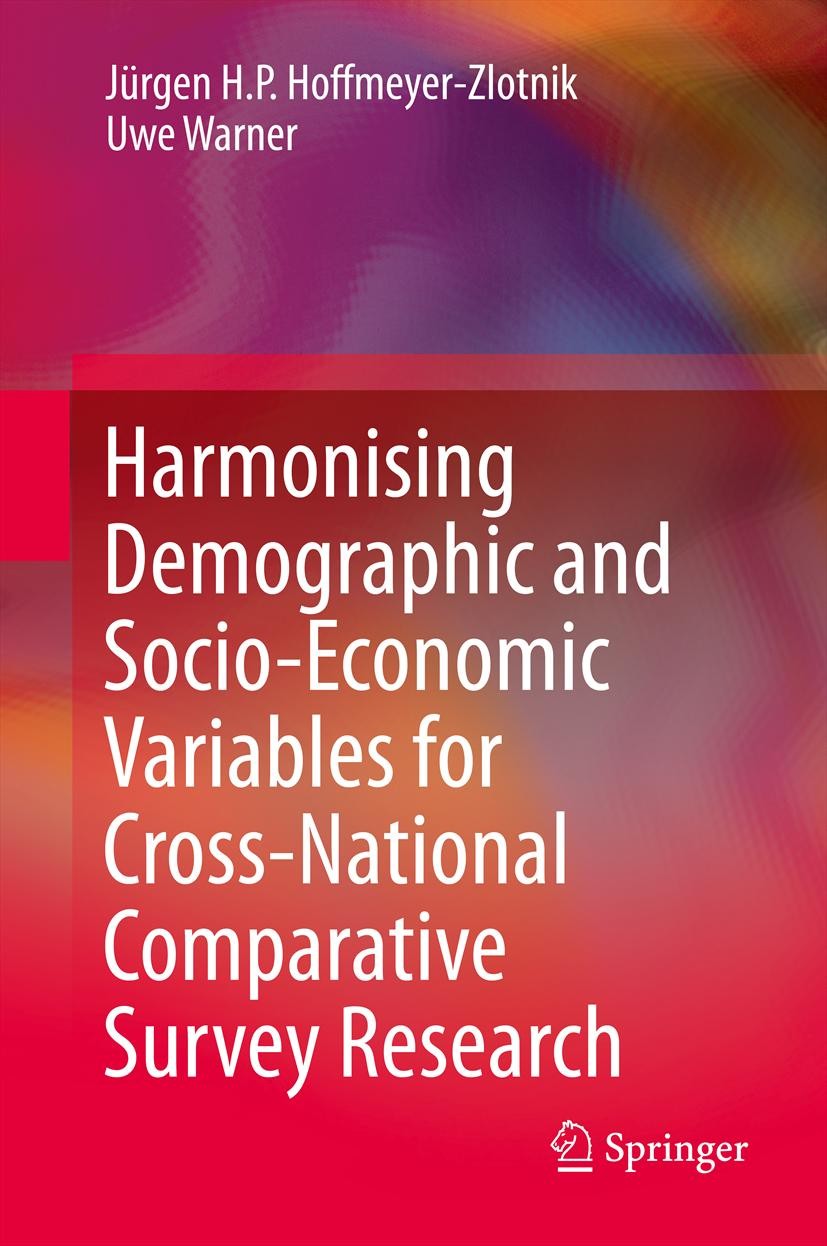| 书目名称 | Harmonising Demographic and Socio-Economic Variables for Cross-National Comparative Survey Research | | 编辑 | Jürgen H.P. Hoffmeyer-Zlotnik,Uwe Warner | | 视频video | http://file.papertrans.cn/425/424327/424327.mp4 | | 概述 | Provides harmonisation techniques for researchers engaged in cross-national comparative social science research in Europe.Discusses individual techniques of harmonisation using international compariso | | 图书封面 |  | | 描述 | This book explains harmonisation techniques that can be used in survey research to align national systems of categories and definitions in such a way that comparison is possible across countries and cultures. It provides an introduction to instruments for collecting internationally comparable data of interest to survey researchers. It shows how seven key demographic and socio-economic variables can be harmonised and employed in European comparative surveys. The seven key variables discussed in detail are: education, occupation, income, activity status, private household, ethnicity, and family. These demographic and socio-economic variables are background variables that no survey can do without. They frequently have the greatest explanatory capacity to analyse social structures, and are a mirror image of the way societies are organised nationally. This becomes readily apparent when one attempts, for example, to compare national education systems. Moreover, a comparison of the national definitions of concepts such as "private household" reveals several different historically and culturally shaped underlying concepts. Indeed, some European countries do not even have a word for "priva | | 出版日期 | Book 2014 | | 关键词 | Comparative social research in Europe; Core Social Variables; Cross-National Comparison Research; Europ | | 版次 | 1 | | doi | https://doi.org/10.1007/978-94-007-7238-0 | | isbn_softcover | 978-94-024-0004-5 | | isbn_ebook | 978-94-007-7238-0 | | copyright | Springer Science+Business Media Dordrecht 2014 |
The information of publication is updating

|
|
 |Archiver|手机版|小黑屋|
派博传思国际
( 京公网安备110108008328)
GMT+8, 2026-2-9 11:35
|Archiver|手机版|小黑屋|
派博传思国际
( 京公网安备110108008328)
GMT+8, 2026-2-9 11:35


